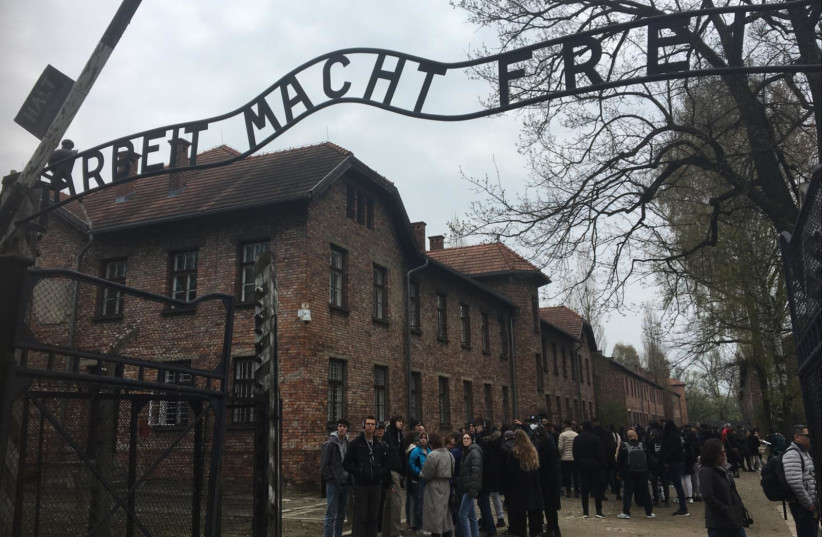News that school trips from Israel to Poland will be resumed has elicited a mixed reception. Under the draft agreement, which still requires Polish ratification and approval by the government and Knesset, the itinerary for Israeli schoolchildren will include one site recommended by the Polish government.
The agreement follows a year in which the trips were suspended due to a dispute with Warsaw over security-related issues. This came on top of an argument over the curriculum and strained Israeli-Polish relations following Polish legislation that criminalized blaming Poland or Polish behavior for Nazi crimes during World War II. Last June, under the Bennett-Lapid government, Israel decided to halt the youth trips to Poland, claiming that the Poles were trying to manipulate the educational content.
Opposition Leader Yair Lapid this week attacked the Netanyahu government for caving in to Polish demands, calling it a “national disgrace.” Foreign Minister Eli Cohen tweeted that “the journeys to Poland will be resumed similar to the way they were in the past,” rejecting an accusation by Lapid that participants would “be required to visit sites commemorating the killers of Jews.”
Before the Polish legislation was passed, Poland had been one of Israel’s strongest allies in Europe. The announcement that the trips would be resumed can be seen as a sign of the warming of ties between the two countries.
Reaching an agreement with Poland should be seen as an opportunity not only to reset ties with the Central European country, but also to reassess how the youth trips – with thousands of participants every year – are handled within Israel.

What does Israel need to fix about its Holocaust education trips to Poland?
The first point is the need to keep politics out of educational school trips. Holocaust education should not turn into yet another clash of coalition versus opposition.
An effort should be made to take not only a new look at which sites are on the itinerary for the trips, but also how they are approached. Israel needs to take Polish requests into account in Poland, but preparation for the trips takes place in Israel where Israeli authorities alone can determine what is taught and how.
Yad Vashem issued a statement stating that the group trips must maintain “complete historical accuracy, including the role of Poles in the persecution, handing in, and murder of Jews during the Holocaust, as well as in acts of rescue... We believe that all educational visits from Israel to Poland in the future will be conducted accordingly.”
There are many educational facilities and sites within Israel that can provide excellent background material and preparation for the trips, addressing the unique relevance to young Israelis.
Care should be taken to ensure that today’s youth realize the true scope and aims of the Nazis: to destroy the entire Jewish people. Most of the Holocaust took place in Europe because it spread from Nazi Germany. The Nazis established many of their concentration camps in Poland, which it had invaded. Nonetheless, the Shoah was not only an attempt to eradicate European Jewry, but world Jewry – Jews wherever they were found. Sephardic Jews were killed in Greece, Libya, Tunisia and elsewhere, and if the Nazis had had their way, millions more Jews would have been murdered. The Holocaust was not an atrocity against Ashkenazi Jews but against Jews, period.
The role of Righteous Gentiles – those brave people, in Poland and elsewhere, who risked their own lives to save Jews – needs to be acknowledged, along with the fact that they were the minority. That is what makes their acts so courageous and commendable. The complicity of locals willing to help destroy Jewish communities and kill Jewish neighbors should not be overlooked.
Finally, the trips must be affordable for all. No student should be denied the chance to travel to see the sites where the Nazi atrocities took place for lack of funds. At the same time, there needs to be a greater effort to prevent the trips from turning into a shallow experience – they should not be considered glorified, fun school trips.
As we approach Yom Hashoah, Holocaust Remembrance Day, we should take the opportunity to reassess how Israel handles Holocaust education and commemoration – not in response to Polish demands, but for Israel’s own sake.
